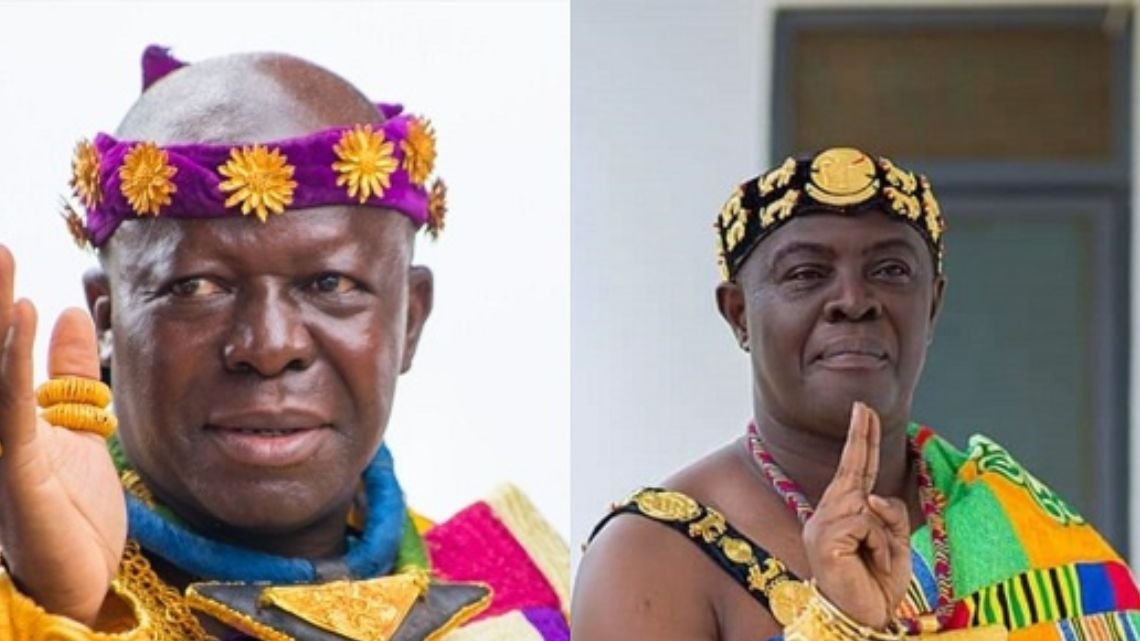Dormaahene Osagyefo Oseadeeyo Agyeman Badu II has made a commitment to address and resolve any misunderstandings or disputes with the Asantehene, Otumfuo Osei Tutu II.
This pledge was made during a recent courtesy call from the presidential candidate for the New Force party, Nana Kwame Bediako, also known as Cheddar.
Cheddar’s visit to the Dormaahene’s palace was part of his regional campaign tour, during which he advocated for peace and reconciliation between the two traditional leaders.
The efforts to foster dialogue highlight the significance of unity within the region’s traditional leadership structures.
“Otumfuo and Osagyefo are two significant names, and both are chiefs. If it weren’t for the blessings of God, they wouldn’t have become chiefs. But things happen for a reason.
“I came here with drinks to appease you, and I will plead on behalf of Otumfuo as well to cease all grudges between the two of you.
“I, Nana Kwame Bediako, am offering my head for the sake of peace. If the two of you are united, we have peace in Ghana. But if there is separation, then we are also separated. What I am asking them to do, if it doesn’t become possible, they should behead me,” Cheddar said.
Dormaahene Osagyefo Oseadeeyo Agyeman Badu II assured that his commitment to fostering peace with Otumfuo Osei Tutu II will be steadfast and impactful.
He emphasized that his dedication to reconciliation and harmony will not go unfulfilled.
“What he said has left me speechless. He has addressed issues that our leaders in the country cannot talk about. Who doesn’t want peace? I have thought about it, and I promise him that his efforts won’t be in vain. If not for Ghana’s 1992 constitution that prohibits chiefs from engaging in politics, I would have declared my support for him,” he said.
Dormaahene Osagyefo Oseadeeyo Agyeman Badu II has openly criticized Asantehene Otumfuo Osei Tutu II regarding specific traditional authorities that he believes the Asantehene lacks the entitlement to oversee.
Despite not having a clear reason for their discord, it is evident that the relationship between the two leaders has been strained, marked by instances of reported ‘bad blood’ over the years.
Recently, Dormaahene’s criticisms have focused on the controversial elevation of Fiaprehene to paramountcy, a move he contends exceeds the Asantehene’s authority.
This ongoing dispute highlights the deep-seated tensions between the two traditional rulers, reflecting broader issues within the chieftaincy that have attracted media attention.

